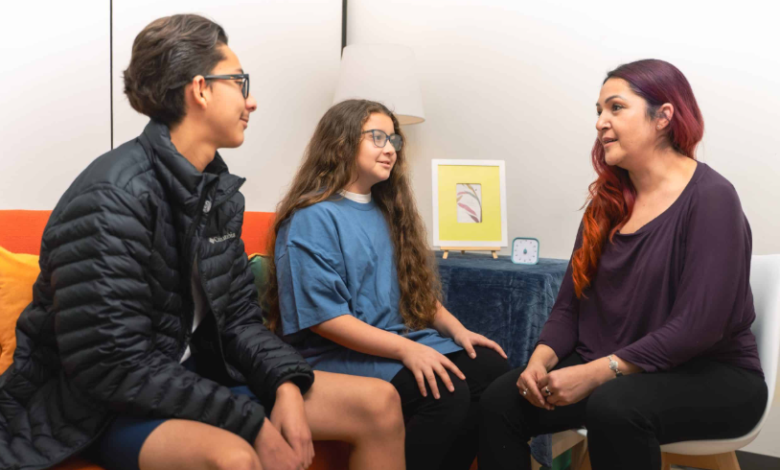Bipolar Support Groups San Diego: Your Path to Connection and Resilience

If you’re living with bipolar disorder or supporting someone who is, chances are you’ve felt the weight of isolation, uncertainty, and constant questions: “How do I cope? Who understands me? Where can I find support?” That’s why bipolar support groups San Diego matter.
This blog post will guide you through:
- Why peer support is essential for bipolar disorder
- What to look for in a quality support group
- Existing in-area options in San Diego
- Best practices for engaging and getting value from a group
- How to consider combining support groups with formal treatment
Why Peer Support Matters for Bipolar Disorder
While formal therapy, medication, and psychiatric care are foundational, peer support adds something uniquely powerful:
1. Shared Experience and Reduced Isolation
One of the hardest parts of bipolar disorder is feeling like you’re alone in your struggle. When you join a group of people who live with similar mood swings, challenges, and doubts, you see that you’re not alone—and that alone brings relief.
2. Practical Strategies from People Who’ve Walked the Path
A clinician can teach you theory, but peers can share what actually worked (or didn’t) in real life. How do you manage a mixed episode? How do you deal with relationships when moods change? These are the conversations peers can offer.
3. Accountability and Encouragement
Support groups help members stay accountable to wellness practices—medication adherence, mood tracking, self-care routines—and provide encouragement when you falter.
4. Hope, Role Models, and Narrative Change
Hearing stories of recovery, resilience, and sustainable stability—from people you meet in the group—reshapes your narrative from “illness” to “journey with purpose.”
A noteworthy research note: the Depression and Bipolar Support Alliance (DBSA) reported that participating in peer support groups correlated with better coping skills, higher acceptance of illness, and notably lower hospitalization rates.
What to Look for in a Quality Bipolar Support Group
Not all support groups are created equal. When evaluating a group (online or in person), consider:
| Feature | Why It Matters |
| Peer-led or co-facilitated | Groups led or co-facilitated by someone with lived experience tend to foster trust, authenticity, and empathy. |
| Structure and consistency | Regular meeting times and formats help build consistency and predictability. |
| Clear guidelines and confidentiality rules | Ensures psychological safety to speak openly. |
| Focus on coping skills + story sharing | A blend of narrative sharing and practical strategies helps keep meetings useful. |
| Permission to attend voluntarily | Open groups (where members can come and go) may feel more accessible early on. |
| Accessible location or online option | Geographic convenience or hybrid models increase attendance ease. |
Bipolar Support Groups San Diego — Local Options & Resources
Here are several existing support groups and organizations in the San Diego area:
DBSA San Diego (Depression & Bipolar Support Alliance San Diego)
DBSA San Diego offers peer-led support groups and meets twice weekly for individuals and families affected by bipolar and mood disorders.
They also maintain listings on Meetup, with both in-person and virtual support options.
Their chapter is part of the larger DBSA network offering online support groups.
NAMI San Diego
The National Alliance on Mental Illness (NAMI) San Diego offers peer support and education programs for individuals and families affected by serious mental illness. Their “Support” section includes help connecting to local groups.
Rancho Bernardo DBSA (Aurora San Diego Hospital listing)
Aurora San Diego Hospital lists a Depressive Bipolar Support Alliance — Rancho Bernardo, a peer-led support group meeting at 6:00 pm in a private dining room.
DBSA Support for Family & Friends of Teens / Bipolar Family Support
If you are a parent, caregiver or a loved one, there is a DBSA San Diego for Family & Friends of Teens support group (meets 2nd & 4th Wednesday, 6:30–8:00 pm) in El Cajon. Also, the Mental Health Center of San Diego hosts a Bipolar Family Support group (discussed in their blog) for family members to share experiences.Psychology Today Listings
Psychology Today maintains a directory of bipolar disorder support groups in San Diego, including virtual groups for specific subpopulations (e.g. family, caregivers) and mixed groups.
When contacting a group, ask about meeting times, format (virtual/in-person/hybrid), guidelines, and facilitation style.
See also: Personalized Treatments for Teens LA: A Holistic, Teen-Centered Approach to Mental Health
How to Get Started and Get the Most Out of a Support Group
Joining a support group can be daunting. Below are practical tips to make the experience fruitful:
- Reach out early
Send an email or call the organizer to introduce yourself briefly. Ask about what to expect in your first meeting (agenda, norms, confidentiality, etc.). - Set small goals
For your first meeting, aim simply to listen and observe. You don’t have to share until you feel ready. - Bring a mood log or recent journal notes
Having data or reflections may help when it’s your turn to talk. It also helps you track changes over time. - Respect confidentiality and group norms
Don’t share sensitive details of other members beyond the group’s walls. - Offer reciprocity
Over time, you’ll likely have insights or experiences others find helpful—offer them when appropriate. - Stay consistent
Attend regularly if possible. The greatest benefit often comes from sustained participation. - Pair group support with clinical treatment
Support groups are not a substitute for medical or psychiatric care. Use group insights to complement your therapy, medication strategies, or psychiatric care.
Overcoming Barriers & Common Concerns
“I don’t fit in / my story is too different”
Every person’s journey is unique. A well-structured support group welcomes diversity in diagnosis severity, treatment choices, and life stage.
“What if someone gives bad advice?”
Healthy groups emphasize sharing—not prescribing. Use your own judgment, and always consult clinicians before making changes to treatment plans.
“I can’t afford a group or I don’t see one nearby”
Many peer groups are free or low cost. Online groups (such as those run via DBSA) allow geographic flexibility.
“I’m worried about stigma or being judged”
Confidentiality rules and well-facilitated group environments reduce judgment. Over time, seeing others be open about their challenges helps reduce internal shame.
When a Support Group Alone Isn’t Enough
If you find your mood symptoms intensifying, you experience suicidal thoughts, or daily functioning is severely impaired, group support alone is not sufficient. That’s when structured clinical care is essential:
- A psychiatrist can evaluate and prescribe mood stabilizers, antipsychotics, or other medications.
- A therapist (e.g., cognitive behavioral therapy, dialectical behavior therapy) can help with skills, cognitive reframing, and emotional regulation.
- In more intensive cases, partial hospitalization or inpatient care may be needed.
- Combine clinical care with peer support to get the best of both: professional tools + lived wisdom.
If you’re exploring treatment options in San Diego, the linked resource above (the bipolar disorder treatment in San Diego page) is a useful starting point.
How You Can Help Others by Supporting Outreach
If you manage a mental health blog, podcast, or local health site, consider publishing guest content about bipolar support groups San Diego. A resource like this helps people find local community—and embedding that hyperlink high in your piece improves discoverability. Sharing via social media, investor newsletters, or community bulletins helps reach more individuals in need.
Also, linking back to chapters like DBSA San Diego, NAMI San Diego, and treatment center pages can strengthen internal authority and local connections.
Conclusion: The Power of Connection in Bipolar Management
Bipolar disorder can feel overwhelming, unpredictable, and isolating—but it doesn’t have to be faced alone. Peer support groups like those in San Diego help bridge the gap between therapy rooms and daily life. They bring empathy, accountability, and hope.If you or someone you love is looking for bipolar support groups San Diego, start by contacting DBSA San Diego or local chapters, check NAMI San Diego, and explore the listings on Psychology Today. Pair group support with clinical care for a holistic approach. Know that by reaching out, you’re already taking a brave step forward—one step toward connection, strength, and sustainable recovery.







